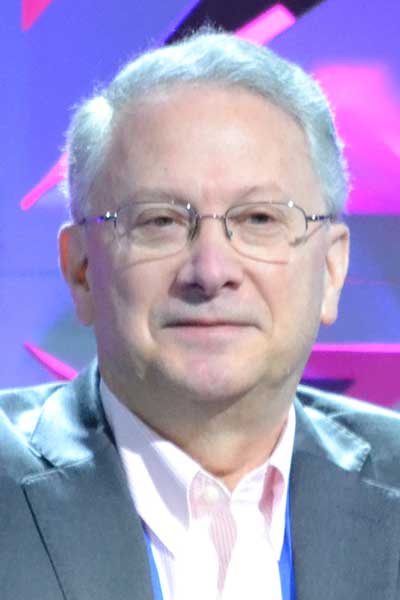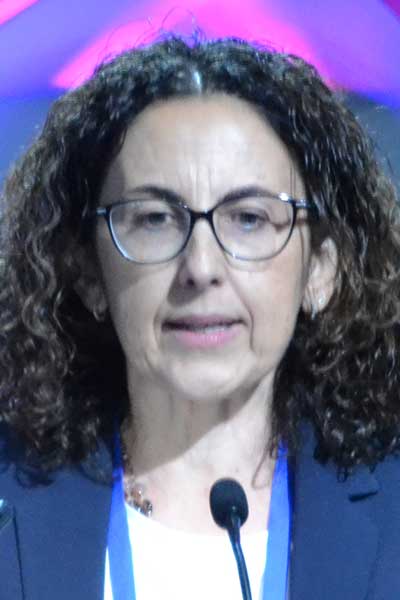Diagnosing and treating systemic lupus erythematosus (SLE) and lupus nephritis (LN) present many challenges, including the importance of obtaining kidney biopsies, a lack of efficient diagnostic panels, choosing therapies, and once treated, problems with patient compliance and adherence. Meet the Panel: The Latest in Lupus Treatment included three experts who each presented a specific patient case, then encouraged the audience to make suggestions and ask questions.

The session is available on demand for registered ACR Convergence 2023 participants through October 31, 2024, on the meeting website.
The first case, presented by Maria Dall’Era, MD, Chief of Rheumatology and Director of the Rheumatology Clinical Research Center, University of California, San Francisco, was that of a 31-year-old woman diagnosed with SLE a year ago. A kidney biopsy had been done to assist with diagnosis. Dr. Dall’Era emphasized the importance of obtaining kidney biopsies for correct diagnosis but said the need for repeat biopsies over time is a problem. The need for better urinary biomarkers, so that repeat biopsies aren’t needed, was mentioned by the audience.
“It’s important to use data to inform therapy,” Dr. Dall’Era said. “There are several options, and some data favor belimumab, while other data favor voclosporin. The decision usually depends on the patient’s proteinuria level and overall medical history. Adjunct treatment for kidney protection, as mentioned in the 2023 EULAR guidelines, is essential.”

An important focus of all presenters was the recent update to the EULAR recommendations for the management of SLE. The ACR is working on its own lupus guideline. The project addresses LN and non-renal lupus. Final publication of the ACR guideline is anticipated in 2025.
The second case, presented by Richard Furie, MD, Chief of the Division of Rheumatology, Northwell Health, was of a nurse practitioner diagnosed with SLE in 2010. He started treating her in 2020; by 2023 her lab test results were still problematic even with several courses of a variety of treatments. She had persistent proteinuria, among other issues.
“Even though she was a healthcare practitioner and was well educated in medical issues, I needed to help her focus on compliance and adherence to medications, and this patient also kept missing appointments,” Dr. Furie said.
Regarding treatment, he stated that he favors B cell-directed therapies, and there was a detailed discussion of how those therapies affect different populations.

The third case was presented by Marta Mosca, MD, PhD, Professor of Rheumatology at the University of Pisa and Head of the Rheumatology Unit at the Azienda Ospedaliera Universitaria Pisana, Italy. She discussed a case of non-renal SLE with cutaneous involvement in a woman of European ancestry. She explained that skin disease is a significant burden for patients, and that cutaneous lesions may be difficult to treat. She highlighted the need to taper steroids and the need to use immunosuppressive drugs/biologics at an early stage in the treatment of this condition.
“There were a few negative prognostic factors involved with this patient,” Dr. Mosca said. “She was a smoker and also wanted a pregnancy, which were both problems. Also, due to her skin manifestations, she was overusing corticosteroids.”
Dr. Mosca explained to the patient that smoking can cause and exacerbate the skin lesions, and she tried to emphasize there were many lifestyle measures this patient could implement that would help, in addition to medications.
WATCH ACR CONVERGENCE 2023 SESSIONS ON DEMAND
If you weren’t able to attend a session in person during ACR Convergence 2023, you haven’t missed out. All registered meeting participants receive on-demand access to scientific sessions through October 31, 2024.


